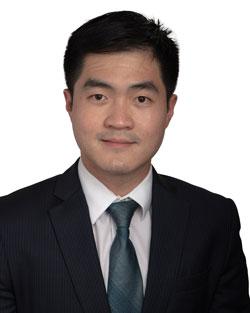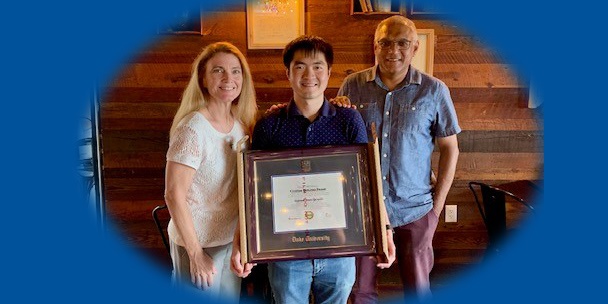
We are so proud of our Alumnus, Pakawat "Nick" Chongsathidkiet, a graduate from Duke’s Pathology PhD Graduate program in 2020 who recently matched into the Duke Neurosurgery residency program starting June 2022. Neurosurgery is one of the most competitive and difficult residencies to obtain, especially for foreign medical graduates.
“Since beginning my journey in medicine, I have found myself increasingly interested in both the astounding complexity and rational arrangement of the nervous system,” said Chongsathidkiet. “During my neurosurgery rotation in medical school, I immediately enjoyed my time in the operating room. Watching neurosurgeons make positive and tangible impacts on patients’ lives with the intricate movements of their own hands was deeply satisfying. I also became acquainted with a group of patients with one of the worst possible prognoses: glioblastoma (GBM). Witnessing their suffering and lack of treatment options inspired me to pursue a career where I could help these patients, not only in the operating room but also in the laboratory.
In 2013, Chongsathidkiet received a Prince Mahidol Award Foundation Scholarship, awarded to the top five medical students in Thailand. He then began a research fellowship at the Preston Robert Tisch Brain Tumor Center at Duke University.
“During this fellowship, I encountered cutting edge innovations in the field of neuro-oncology that can be used to improve patient care,” remembered Chongsathidkiet. “Enamored with the work, I decided to pursue PhD training in the Graduate Program in Experimental Pathology under the supervision of Peter Fecci, MD, PhD, Associate Professor of Neurosurgery. My time in the Pathology PhD program really fueled my passion for academic medicine and prepared me for a career as neurosurgeon-scientist. The PhD Program courses, faculty, alumni, peers, and administrators gave me knowledge, guidance, and a community of support from which to expand my training,” he said.
Under Fecci’s guidance, Chongsathidkiet uncovered a novel phenomenon with significant translational value for patients with GBM and brain metastases. He identified and characterized the mechanisms underpinning bone marrow T-cell sequestration, a previously undescribed mode of immune dysfunction that contributes to immunologic escape in patients with intracranial tumors. They published their findings in Nature Medicine and are currently working alongside Nobel Laureate Dr. Robert Lefkowitz to develop a novel therapy to reverse this pathophysiology in cancer.
“It is my hope that our continued work will ultimately translate to the clinic and enhance the efficacy of immunotherapies for patients with GBM, brain metastases, and other neurological diseases more broadly, said Chongsathidkiet. “While my research experience was valuable, direct patient care has always fueled my motivation. After my postdoctoral year, I was accepted into the clinical fellowship program at Mount Sinai in New York. Having finished my PhD, and postdoctoral work, I am thrilled to begin my residency training as the next step toward becoming a neurosurgeon-scientist.”
